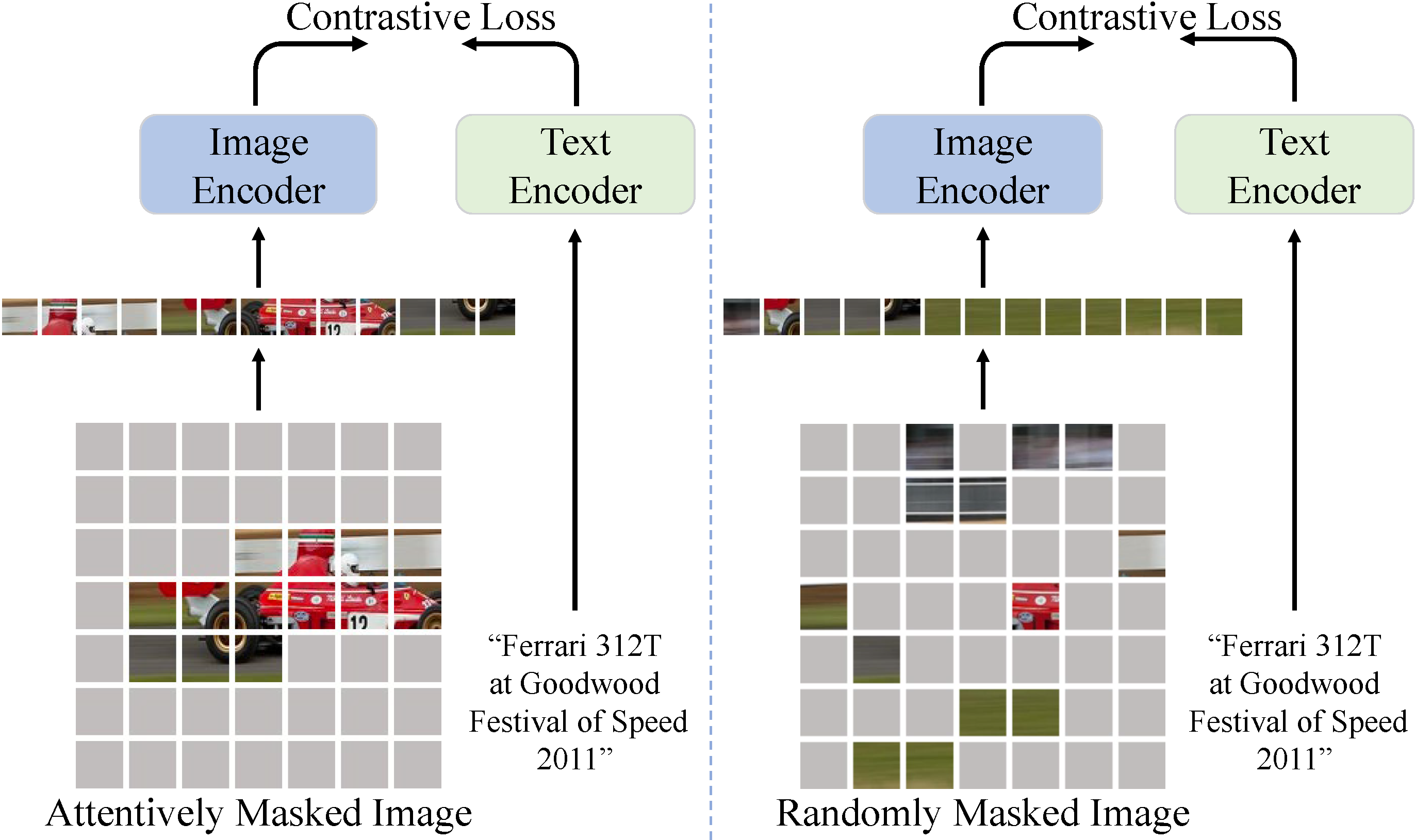Attentive Mask CLIP
Image token removal is an efficient augmentation strategy for reducing the cost of computing image features. However, this efficient augmentation strategy has been found to adversely affect the accuracy of CLIP-based training. We hypothesize that removing a large portion of image tokens may improperly discard the semantic content associated with a given text description, thus constituting an incorrect pairing target in CLIP training. To address this issue, we propose an attentive token removal approach for CLIP training, which retains tokens with a high semantic correlation to the text description. The correlation scores are computed in an online fashion using the EMA version of the visual encoder. Our experiments show that the proposed attentive masking approach performs better than the previous method of random token removal for CLIP training. The approach also makes it efficient to apply multiple augmentation views to the image, as well as introducing instance contrastive learning tasks between these views into the CLIP framework. Compared to other CLIP improvements that combine different pre-training targets such as SLIP and MaskCLIP, our method is not only more effective, but also much more efficient. Specifically, using ViT-B and YFCC-15M dataset, our approach achieves $43.9\%$ top-1 accuracy on ImageNet-1K zero-shot classification, as well as $62.7/42.1$ and $38.0/23.2$ I2T/T2I retrieval accuracy on Flickr30K and MS COCO, which are $+1.1\%$, $+5.5/+0.9$, and $+4.4/+1.3$ higher than the SLIP method, while being $2.30\times$ faster. An efficient version of our approach running $1.16\times$ faster than the plain CLIP model achieves significant gains of $+5.3\%$, $+11.3/+8.0$, and $+9.5/+4.9$ on these benchmarks.
PDF Abstract ICCV 2023 PDF ICCV 2023 Abstract




 MS COCO
MS COCO
 Flickr30k
Flickr30k
 YFCC100M
YFCC100M